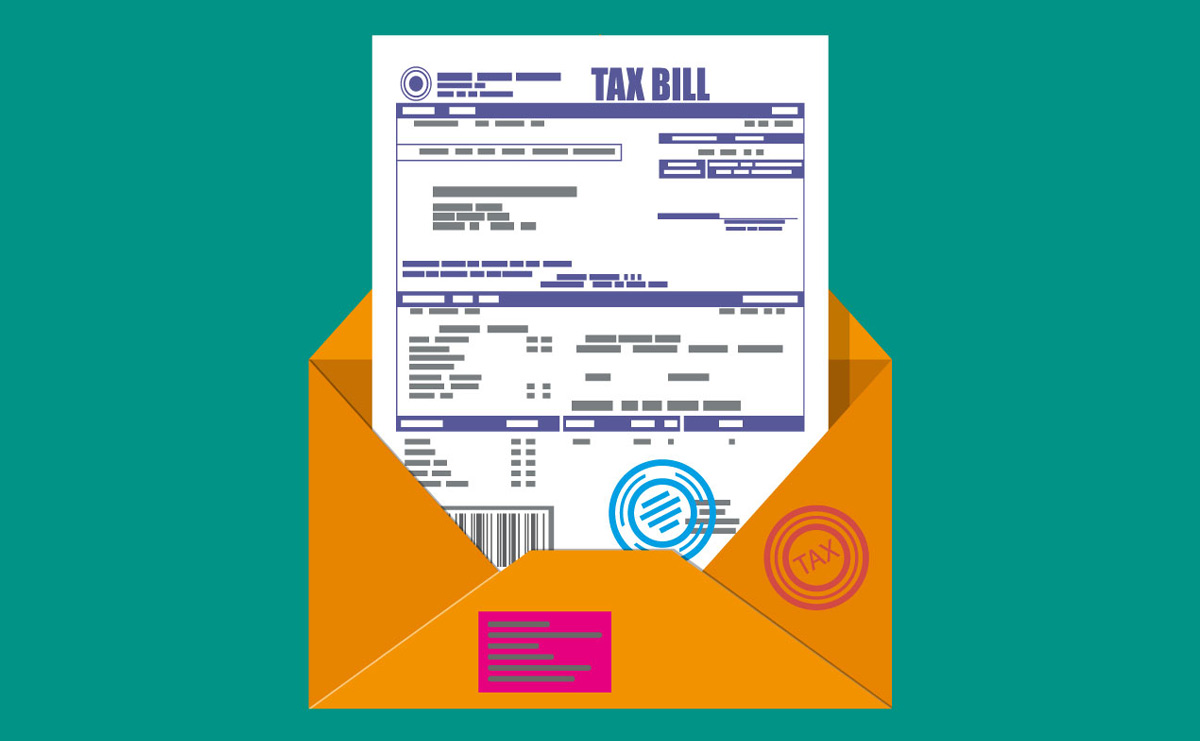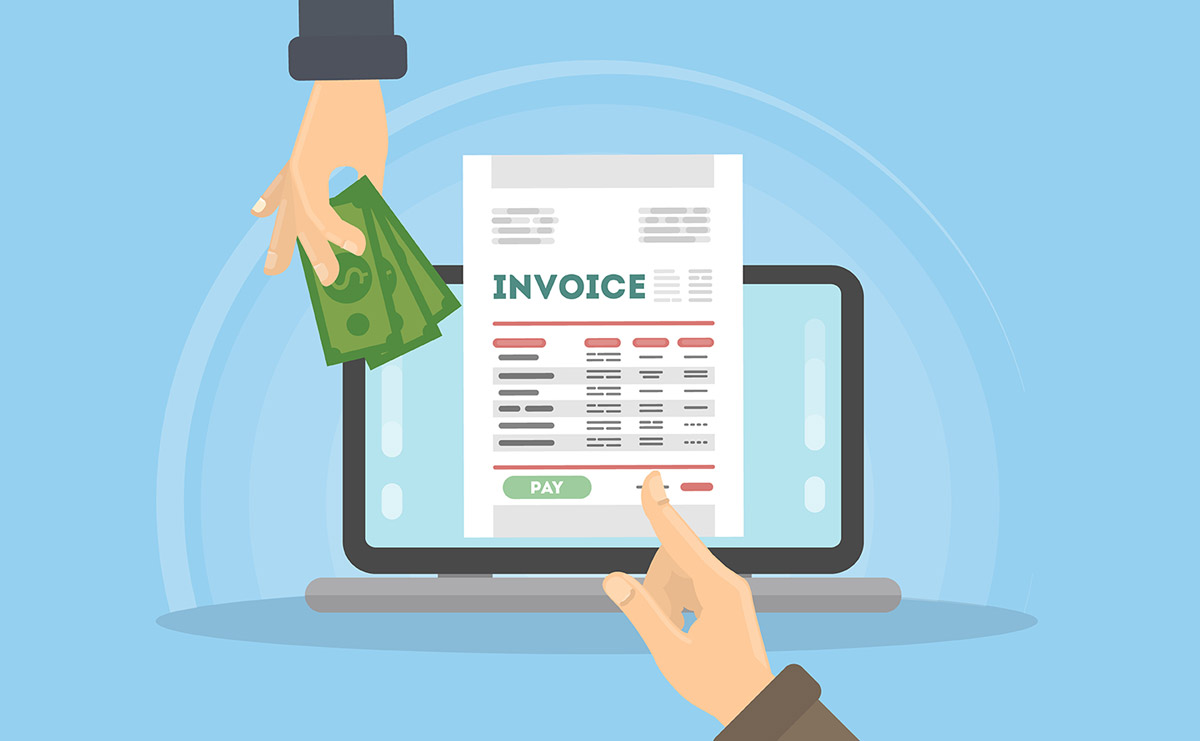Contents
Form 1099 Compliance Guide for Attorneys and Law Firms
Compliance with Form 1099 can significantly affect the financial well-being and legal status of a law firm. Lawyers generally have unique IRS rules that prescribe when they must provide Form 1099 to others. In this guide, we offer responses to the most frequent questions, like do lawyers receive 1099 forms and law firms get 1099 forms, explaining the situation and rules that apply. Practicing attorneys, firm partners, and operations managers will be given hands-on guidance on managing Form 1099 reporting, including familiarizing themselves with key thresholds.
Form 1099 Basics for Law Firms
Form 1099 is an IRS “information return” used to report various types of income paid to non-employees. In a law firm context, that typically means reporting payments made to independent contractors or other businesses, as well as reporting payments the firm itself receives in certain cases. The IRS matches these forms against income reported by recipients to catch discrepancies, so accuracy is critical. Failure to properly report can raise red flags for the IRS, potentially leading to audits or fines. Accurate 1099 reporting helps your firm avoid such troubles and ensures income is properly documented for all parties.
What is Form 1099?
Form 1099 isn’t a single form but a family of forms (over 20 variations) that record different kinds of income. Law firms mainly deal with a few key types:
- Form 1099-NEC (Nonemployee Compensation): Used to report payments of $600 or more for services performed by someone who is not your employee. This includes fees paid to freelance attorneys, contract paralegals, expert witnesses, and other service providers.
- Form 1099-MISC (Miscellaneous Income): Used for various other payments, like rent, prizes, or gross proceeds paid to an attorney in a legal settlement. Notably, Box 10 of Form 1099-MISC is specifically for reporting gross proceeds paid to attorneys (more on this later).
- Form 1099-K (Payment Card and Third-Party Transactions): Used by payment processors (e.g., credit card companies or PayPal) to report payments made to merchants. If your law firm accepts credit card payments, you may receive a Form 1099-K summarizing those client payments.
| Form 1099 Type | Purpose in Legal Context | Who Issues & To Whom | Threshold |
| Form 1099-NEC | Nonemployee compensation (service fees). Includes legal service payments to attorneys or firms (e.g., referral fees, freelance work). | Issued by businesses (clients or law firms) to individuals or entities (including attorneys) who provided services. | $600 or more per year (cumulative). |
| Form 1099-MISC | Miscellaneous income. Used for gross proceeds paid to an attorney (e.g., settlement payments), as well as rents, prizes, etc. | Issued by businesses or payors (e.g., insurance companies) to attorneys (for settlements) or others (landlords, prize winners, etc.). | $600 or more per year for most categories (only $10 for royalties). |
| Form 1099-K | Payment card and third-party network transactions. Summarizes credit card or online payments received by a law firm. | Issued by payment processors (merchant services) to payees (law firms or attorneys receiving client payments). | $600 or more in 2023+ (previously $20,000 with 200 transactions). |
Table 1: Key Types of Form 1099 for Attorneys and Law Firms
Comparison of Form 1099 types (1099-NEC, 1099-MISC, 1099-K) relevant to attorneys and law firms, including their purpose, who issues them, and report thresholds.
Why Accurate 1099 Reporting Matters
Accurate Form 1099 reporting is crucial for compliance and financial integrity. The IRS requires businesses to file these forms on an annual calendar-year basis, providing copies to payees by January 31 and to the IRS soon after. When a payer reports a certain amount on a 1099 and the recipient reports a different amount as income, the IRS’s computers detect a mismatch. Such mismatches can trigger IRS inquiries or audits. Moreover, failing to issue or file required 1099s can result in escalating penalties (the longer the delay, the larger the fine). In short, diligent 1099 reporting helps a law firm avoid IRS problems and ensures all income is properly accounted for.

Do Attorneys Get 1099 Forms?
Yes – attorneys and law firms frequently receive Form 1099s from clients or other businesses. In fact, lawyers tend to handle more 1099 forms than most other professionals due to tax rules that specifically single out legal payments. If you’re wondering do attorneys get 1099 forms or do law firms get 1099 forms, the answer is generally “yes” whenever they are paid $600 or more for services in the course of someone else’s trade or business.
Business Clients Must Issue 1099s to Attorneys
The general IRS rule is that any person or entity engaged in a trade or business who pays $600 or more for services over the year must issue a Form 1099 to the payee. This applies to legal services just like any other service. For example, if a corporate client pays an attorney $5,000 for a contract review, that client (as a business) is required to send the attorney a Form 1099-NEC reporting the fees. Even multiple smaller payments that sum to $600 or more in a year will trigger the requirement. According to the American Bar Association, any business client paying a law firm more than $600 in a year as part of the client’s operations must issue a Form 1099.
No Exceptions for Incorporated Law Firms
Usually, payments to corporations are exempt from Form 1099 reporting. However, legal services are a special case. The IRS explicitly removed the corporate exemption for payments to attorneys. In practice, this means all payments of $600 or more to a lawyer or law firm must be reported on a 1099, regardless of whether the law practice is a sole proprietorship, partnership, LLC, or corporation. It doesn’t matter if the firm has one lawyer or one thousand – the 1099 rule still applies. Even an incorporated law firm will receive 1099s from clients for fees earned. This has been the rule since 1997, ensuring there’s a paper trail for legal fees that might otherwise go unreported.
Personal vs. Business Payments
One important distinction is the nature of the client. The 1099 requirement applies to payments made during a payor’s trade or business. If an individual hires an attorney for a purely personal matter (for example, a one-time consultation on a divorce or a will), that individual is generally not required to issue a 1099. The IRS isn’t expecting private, non-business clients to file information returns for personal legal expenses. Thus, many attorneys who serve individual clients might not receive 1099s from those private clients.
However, attorneys should be aware that some non-business cases can still result in 1099 reporting. For example, if an insurance company (a business) pays settlement proceeds to a plaintiff’s attorney, it must issue a Form 1099-MISC to that attorney for the full amount of the payment. This is true even if the client’s settlement itself is non-taxable (say, a personal injury award) – the reporting to the attorney still applies under IRS rules. In summary, lawyers get 1099 forms for most business-related payments, but purely personal payments from individuals are outside the 1099 scope.
When Do Law Firms Get 1099 Forms?
Law firms not only receive 1099s, but they also need to issue them when acting as payers. If your firm pays $600 or more over the year to a non-employee or unincorporated entity for services, you’re generally required to send that payee a Form 1099. This obligation covers a range of people and companies that law firms commonly pay: contract attorneys, freelance paralegals, expert witnesses, investigators, consultants, and even other law firms in certain situations.
Contractors, Experts, and Other Vendors
If your firm hires any independent contractor or outside service provider and pays them $600 or more in a year, you must issue a Form 1099 (usually Form 1099-NEC). This broad category includes contract lawyers, freelance paralegals, experts, investigators, and similar professionals who are not on your payroll. For example, if you pay a contract attorney $2,000 for legal research or an expert witness $1,000 for testimony, you should report those fees on 1099-NEC forms to the recipients. (If any of these vendors operate via a C-Corp or S-Corp, and they’re not a law firm or medical entity, a 1099 may not be required – their W-9 form will usually indicate that.)
| Payment Type / Payee | 1099 Required? | Notes |
| Contract attorney or freelance lawyer | Yes (1099-NEC) | Include payments to solo attorneys or small firms (even if LLC/LLP). |
| Expert witnesses, investigators, consultants (non-corp) | Yes (1099-NEC) | Issue 1099s for any experts or service vendors if not incorporated. |
| Referral fees to other attorneys | Yes (1099-NEC) | Required for $600+ paid to co-counsel or referring lawyers. |
| Office landlord (rent payments) | Yes (1099-MISC) | Report rent $600+ in Box 1; many firms issue this even to corporate landlords. |
| Incorporated vendor (C or S-Corp) | No | Payments to corporations are generally exempt (except for legal or medical services). |
| Employee (salary or bonus) | No | Employees receive a W-2 for wages, not a 1099. |
| Expense reimbursements | No | Do not include reimbursed expenses in 1099 reporting. |
| Payments via credit card or PayPal | No | Excluded – reported by processors on Form 1099-K. |
Table 2: Common Law Firm Payments – 1099 Required or Not?
The table outlines common types of payments made by law firms and indicates whether a Form 1099 is required. Examples: contract attorneys (yes), expert witnesses (yes, if not incorporated), referral fees (yes), corporate vendors (no), employees (no), etc.
1099-NEC vs. 1099-MISC: Using the Right Form
Two forms are especially relevant for law firms: Form 1099-NEC and Form 1099-MISC. Knowing which to use in each situation is vital for proper compliance. As a rule of thumb, payments for services go on 1099-NEC, whereas other payments (like certain legal settlements) go on 1099-MISC. Let’s break down the difference.
Form 1099-NEC – For Legal Service Fees
Form 1099-NEC is dedicated to nonemployee compensation. Law firms should use this form to report fees and payments for services that they pay out to others. Likewise, when law firms receive this form, it typically reflects income from the legal services they provided.
From the payer’s perspective, report on 1099-NEC any attorney’s fees, referral fees, or other service payments your business made directly to an attorney or any independent contractor. For instance, if you paid a freelance lawyer $2,000 for legal research, put $2,000 in Box 1 of the 1099-NEC. Similarly, if you paid an investigator $800, that also goes on a 1099-NEC for that payee.
From the recipient’s perspective, a Form 1099-NEC means the IRS sees that payment as business income to you. Unlike a W-2 wage, no taxes are withheld upfront, so you will need to report that income on your tax return and handle any applicable self-employment tax yourself. In short, a 1099-NEC signals that the payment was for services rendered by your firm and that you’re responsible for the associated taxes.
Form 1099-MISC – Gross Proceeds to Attorneys
Form 1099-MISC covers various miscellaneous payments. For lawyers, the critical part of this form is Box 10: Gross proceeds paid to an attorney. This is used when an attorney receives money in connection with legal services, but not necessarily as a fee for their own services. Typically, this situation arises with legal settlements or judgments.
For example, say a lawyer settles a case for $100,000, and the check from the defendant is made out to the law firm. Perhaps $60,000 is the client’s share and $40,000 is the attorney’s fee. The defendant (or insurance company) must issue Form 1099-MISC to the attorney for $100,000 (reporting gross proceeds in Box 10). They would likely also issue a 1099-MISC to the client for $100,000 in Box 3 (another income) if the settlement is taxable to the client.
Notably, the attorney who receives a 1099-MISC for $100,000 in gross proceeds does not have to treat that entire amount as personal income. The IRS recognizes that such payments include client money. In this example, the lawyer would ultimately report only the $40,000 fee as income on their tax return, while the $60,000 passed on to the client is not taxable to the lawyer. Attorneys should keep a clear accounting of which portion of any gross proceeds belongs to the client versus the fee, to ensure proper tax reporting. The 1099-MISC serves to inform the IRS that the attorney was involved in the payment, but it doesn’t mean the lawyer earned the full amount.
Electronic Payments and Form 1099-K
As mentioned earlier, payments made via credit card, debit card, or third-party platforms are excluded from 1099-NEC/MISC reporting by the payer. That’s because the payment processor will issue a Form 1099-K for those transactions. For example, if a client pays your invoice through a credit card processing service (or an online payment platform), the client should not include that amount on a 1099-NEC to you. Instead, the processor will send your firm a 1099-K for the total card payments (provided you meet the 1099-K threshold, which is typically $600 in annual transactions for third-party payments). This prevents double reporting of the same income. From the firm’s perspective, be careful not to issue a 1099-NEC to a vendor for payments you made via credit card or PayPal; those will be handled by the processor’s 1099-K.
1099 Compliance Best Practices and Deadlines
Staying compliant with 1099 rules requires organization and attention to deadlines. Small and mid-size law firms can adopt the following best practices to make the process smoother and reduce risk:
Collect W-9 Forms and Track Vendors
Maintain a habit of requesting a completed Form W-9 from every new vendor, contractor, or payee before you issue their first payment. The W-9 form provides the name, address, Tax Identification Number (TIN), and business type (individual, LLC, corporation, etc.) of the payee. This information is essential for preparing 1099s and determining whether one is required. For example, if the W-9 indicates the payee is a corporation (and not a law firm or medical provider), you can mark them as 1099-exempt in your records. Keep all W-9s on file (including those from corporations) as documentation.
Throughout the year, we use accounting or practice management software to log payments by vendor. Categorize which payees are likely 1099-eligible. By December, you should be able to run a report of all vendors who were paid $600 or more in non-employee compensation (excluding any payment via credit card). This preparation makes the January filing process much easier.
Know Your Deadlines
For each tax year’s payment, Form 1099s must be sent out and filed shortly after the year-end. The timeline is as follows:
- January 31 (of the next year): Deadline to send the recipient their copy of the 1099. This is also the deadline for filing 1099-NEC forms with the IRS (covering nonemployee compensation to attorneys, contractors, etc.).
- February 28: Deadline to file paper copies of any 1099-MISC forms with the IRS (if you are mailing forms).
- March 31: Deadline to e-file 1099-MISC forms with the IRS.
If these dates fall on a weekend or holiday, the deadline moves to the next business day. Note that 1099-NEC has a tighter schedule – you must get those filed by January 31, whether filing electronically or by mail. Many law firms e-file all their forms to simplify compliance.
| Action | Deadline | Description |
| Provide 1099 copies to recipients | January 31, 2025 | Send the form to each attorney, contractor, or other payee by this date (covers 1099-NEC, 1099-MISC, etc.). |
| File 1099-NEC with IRS | January 31, 2025 | File 1099-NEC forms with the IRS by Jan 31 (same date for paper or e-filing). |
| File 1099-MISC with IRS (paper) | February 28, 2025 | If filing by mail, 1099-MISC forms must reach the IRS by Feb 28. |
| File 1099-MISC with IRS (electronic) | March 31, 2025 | If filing electronically, 1099-MISC forms must be transmitted by Mar 31. |
| Submit any corrected 1099s | As soon as possible | If you discover an error, file a corrected form and provide an updated copy to the recipient promptly. |
Table 3: Key Deadlines for Filing 1099 Forms (Tax Year 2024)
Table listing Form 1099 deadlines for the 2024 tax year – Jan 31, 2025 (recipient copies and all 1099-NEC to IRS), Feb 28 (paper 1099-MISC to IRS), Mar 31 (e-file 1099-MISC to IRS).
Avoiding Penalties
The IRS can impose penalties for late or incorrect 1099 filings. These penalties increase the later the forms are filed. As of the 2025 filing season, the penalty structure for small businesses is roughly:
- Up to 30 days late: $60 penalty per form.
- 31 days late (through July 31): $120 per form.
- After July 31 or never filed: $310 per form.
- Intentional disregard: $630 per form (if you willfully ignore the requirement).
These fines can add up quickly. For example, failing to file ten required 1099s could result in over $3,000 in penalties if you’re past the summer deadline. If you realize you missed a 1099 or made an error, file a late or corrected form as soon as possible – the sooner you correct it, the smaller the penalty. Generally, the IRS may waive penalties for reasonable cause (e.g., truly unavoidable errors), but it’s not guaranteed. The safest approach is to be proactive: stay organized, double-check vendor information, and file on time to avoid any fines.
Closing Argument: Mastering 1099 Compliance for Your Firm
Form 1099 requirements are indeed unique for legal professionals, but they can be managed confidently with the right approach. We’ve seen that even incorporated law firms receive 1099s for legal fees, and that law firms must diligently issue 1099s to many of their vendors and co-counsel. By understanding who needs a form, which type to use, and the key deadlines, your firm can turn 1099 compliance into a routine task instead of a year-end headache.
Staying on top of these details not only keeps your firm in line with IRS rules but also contributes to smoother operations – no last-minute scrambles or missed forms that could incur penalties. With proper record-keeping, timely filings, and perhaps a bit of automation, 1099 reporting becomes just another standard process. When you master these rules, you protect your practice’s financial health and free yourself to focus on serving clients and growing your firm.
Streamline Your Practice with RunSensible
RunSensible is an all-in-one legal practice management solution designed to make law firm operations easier – including those tedious tasks like tracking payments and tax details. With RunSensible, your firm can securely store vendor information and W-9 data, automate billing and payment records, and set reminders for critical deadlines. Imagine having all your contractor and client payment info in one place, so when 1099 season arrives, you can generate reports with a few clicks. Beyond 1099 support, RunSensible offers case management, client intake, calendaring, and more to elevate your firm’s efficiency.
FAQs
Do attorneys get 1099 forms from their clients?
Yes. Attorneys typically receive Form 1099s for payments made to them in the course of a client’s trade or business. If a business (including an individual operating as a sole proprietor) pays a lawyer $600 or more for services during the year, that business should issue the attorney a Form 1099-NEC. For example, corporate clients or insurance companies will send attorneys 1099s for legal fees or settlements. However, purely personal clients (not engaged in a business) generally do not send 1099s. So, a divorce lawyer paid by a private individual likely wouldn’t get a 1099 from that client, whereas a law firm hired by a company would.
Do law firms have to issue 1099s to other attorneys or law firms?
Yes. Law firms must issue Form 1099-NEC to any attorney or law firm they pay $600 or more for services, even if the payee is incorporated. This includes referral fees, co-counsel payments, or any fee split with another lawyer. The IRS specifically requires reporting of legal fees regardless of the recipient’s entity type. Essentially, when money moves from one firm to another for services, a 1099 should follow. Always collect the tax ID (via W-9) of any lawyer or firm you pay – you’ll need it to prepare their 1099.
What’s the difference between Form 1099-NEC and 1099-MISC for legal payments?
The two forms serve different purposes. Form 1099-NEC reports payments for services (nonemployee compensation). Use 1099-NEC to report fees you paid to independent contractor attorneys, experts, or any service provider (and that’s the form clients use to report payments to your firm for legal work). Form 1099-MISC, on the other hand, covers miscellaneous income such as rent or awards, and importantly, it’s used to report gross proceeds paid to an attorney (Box 10) in situations like settlements.
If a client paid my law firm by credit card or an online platform, do I still get a 1099?
Generally, no – not from the client. Payments made via credit card, debit, or third-party processors (e.g., PayPal) are reported on Form 1099-K by the payment processing company. So, if a corporate client pays a $5,000 invoice with a credit card, the client should not send you a 1099-NEC for that $5,000. Instead, your merchant service provider (e.g., LawPay or another processor) will issue your firm a Form 1099-K for total card transactions (assuming you exceed the threshold).
What happens if my law firm fails to file the required 1099s?
Failing to file the required 1099 forms can lead to IRS penalties and other complications. The penalty amount depends on how late the forms are. For example, filing a 1099 a few months past the deadline can incur a $120 penalty per form, and not filing at all can cost $310 per form (or higher if the IRS finds intentional disregard of the law). These fines can be based on the number of forms and lateness. The IRS may also send a notice of underreporting to your firm if, for instance, a lawyer you paid reported the income, but your firm didn’t file the corresponding 1099.
Sources
Disclaimer: The content provided on this blog is for informational purposes only and does not constitute legal, financial, or professional advice.







